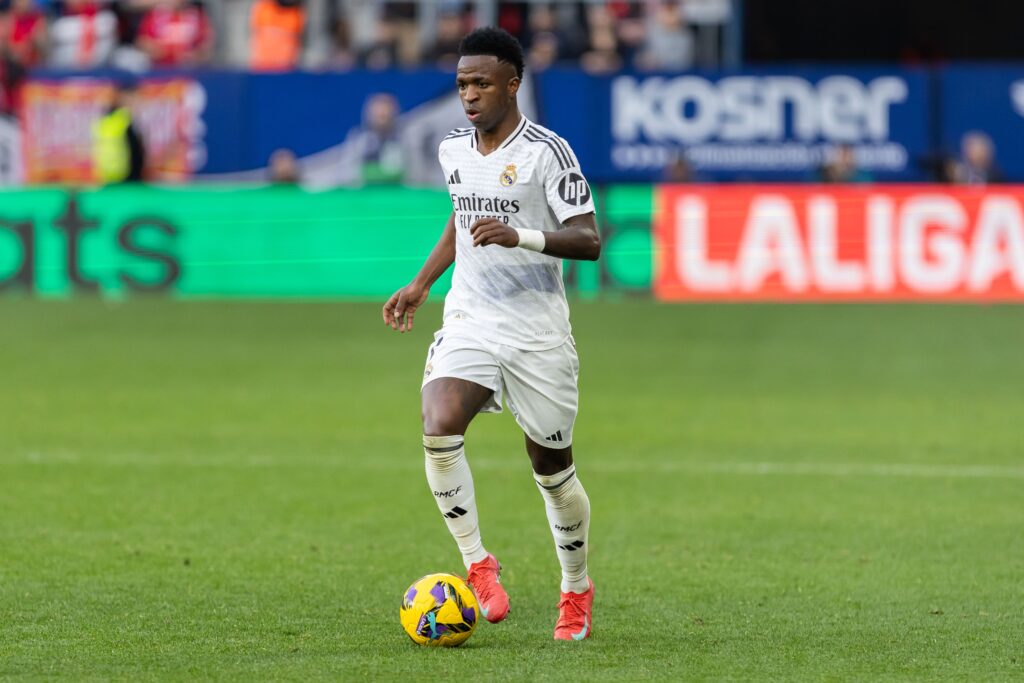Real Madrid delivered a commanding performance at the Bernabéu, beating Barcelona 2-1 and extending their lead at the top of La Liga to five points. Xabi Alonso’s side combined structure, intensity, and precision in his first Clasico as manager. Jude Bellingham ended his goal drought with his first league goal and an assist after recovering from shoulder surgery. Kylian Mbappé continued his lethal scoring run, dominating Barcelona’s defence. Yet the night’s victory was clouded by Vinicius Jr’s furious reaction to being substituted.
The Brazilian winger lost his temper in the 72nd minute. He ignored Alonso, stormed down the tunnel, and returned to the bench minutes later still frustrated. Spanish football analyst Guillem Balague reflected on Madrid’s tactical superiority and the growing tension between Vinicius and the club.
Alonso’s strategy gives Real Madrid control
Alonso’s first Clasico as manager sent a clear message. Seven of Real Madrid’s last eight coaches had lost their debut league meeting with Barcelona. After Carlo Ancelotti’s flexible approach failed last season, Alonso’s structured system delivered immediate results.
“He got everything right. Real Madrid were outstanding, and Barcelona couldn’t cope,” Balague said. “They pressed high, regrouped quickly when beaten, and even Vinicius contributed defensively. Their lines were tight, five to ten metres apart, and Barcelona had no solution.”
The system also maximised Jude Bellingham’s influence. Last season, he carried too much responsibility in midfield. Now, his role is structured but flexible. He started on the right but drifted inside to link with Mbappé or attack the box.
“With Eduardo Camavinga in midfield, Madrid gained energy and balance,” Balague explained. “Bellingham pressed intelligently, found space in the box, and disrupted Barcelona’s build-up. He made life difficult for their midfield all night.”
Vinicius anger highlights internal tensions
Vinicius remains a fan favourite, with chants echoing across the Bernabéu. Yet tension behind the scenes continues to rise. Reports suggest Madrid could sell him if a large offer arrives, and contract talks have stalled, leaving one year remaining after this season.
His reaction to being substituted revealed deeper frustration. After full-time, he even tried to confront Lamine Yamal before being held back. “He deserves criticism for disrespecting Rodrygo, who replaced him,” Balague said. “But Vinicius has grown up feeling targeted and isolated. He believes he’s close to being the best, yet the club now revolves around Mbappé.”
Balague added that Vinicius feels unsupported. “There are reports Madrid wouldn’t refuse €250 million for him, and he senses that. When Alonso substituted him—fairly, since he stopped defending—he thought, ‘why always me?’ Rebuilding trust between him and the club will be difficult.”
Barcelona struggle under Madrid’s intensity
Barcelona’s defeat showed their uneven start to the season. After winning all four Clasicos last year, they looked disorganised and slow. Injuries to Raphinha, Robert Lewandowski, and Dani Olmo have weakened Hansi Flick’s system.
“They look slower and less aggressive,” Balague said. “Their pressing is weaker, leaving spaces for Madrid. On Mbappé’s goal, Alejandro Balde played him onside, and the midfield didn’t react. They struggled to cope.”
Lamine Yamal, dangerous last season, had little impact. “He isn’t fully fit, possibly due to groin pain,” Balague explained. “The Barcelona that caught Mbappé offside eight times last year is gone. They miss Raphinha’s energy and defensive contribution.”
Marcus Rashford, on loan from Manchester United, also struggled. “He tried to attack from the left but lacked support,” Balague said. “He faced multiple defenders and lost possession often. His assist came from one rare pressing moment. Barcelona’s system collapses without pressing.”


